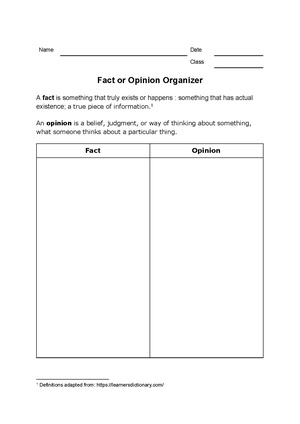Session 4, Tercer Grado – Comunicación y Lenguaje Idioma Extranjero
| Guías metodológicas para el docente de Ciclo Básico/Comunicación y Lenguaje Idioma Extranjero/Tercer Grado/Session 4 | |
|---|---|
| (Selecciona [Contraer] para reducir el recuadro, [Expandir] para ver contenido no mostrado). | |
| Autor | Ministerio de Educación de Guatemala |
| Área | Comunicación y Lenguaje Idioma Extranjero |
| Nivel y/o grado | Básico 3er grado |
| Competencia | |
| Indicador | |
| Saber declarativo | |
| Tipo de licencia | Derechos reservados con copia libre |
| Formato | HTML; PDF |
| Responsable de curación | Editor |
| Última actualización | 2020/10/07 |
Por favor, califica el recurso solo si lo has revisado y/o o usado.
Introduction[editar | editar código]
Students must be able to identify fact from opinion to state later on fact-based research and their personal opinion.
Didactic resources[editar | editar código]
- Dictionary
- Google Translate
- Recycled paper
- YouTube
Session 4, Period 1[editar | editar código]
Initial Phase[editar | editar código]
Have students look up definitions for “fact” and “opinion” in the dictionary of your preference. You may wish to visit the following options for a definition in English:
- Merriam Webster ESL Learner's Dictionary, specialized in learners of English as a Second Language
- Merriam Webster Dictionary, a full English Language Dictionary
- Wiktionary, a Wikimedia community-developed English Language dictionary.
You can take advantage of the opportunity to show students how electronic dictionaries work, if they are available and you see it as appropriate.
Have students copy the fact and opinion graphic organizer in the students book, or download and print it.
Show students the following video:
Intermediate Phase[editar | editar código]
Have students fill out the graphic organizer stating facts and opinions from the video they have seen or other sources you choose.
In pairs students should compare each other's facts and opinions graphic organizers.
Make sure all the students are doing the activity. Walk around the classroom and ask for any doubts, try to encourage them to do a good job.
Wrap up[editar | editar código]
What did we learn today? The students should be able to utter and identify sentences expressing facts and opinions.
Give students a chance to write complete sentences. Check that each one has stated at least two facts and two opinions.
You can use the following rubric:
- No clear difference between statements of fact and opinion.
- Concepts of fact and opinion are clearly stated and differentiated, with spelling mistakes.
- Fact and opinion are clearly stated with no spelling mistakes.
Session 4, Period 2[editar | editar código]
Initial Phase[editar | editar código]
Have students use Google Translate[1] to gather vocabulary regarding facts in their class and school.
Examples of facts
- “We are in (community or location you are in). We can check this on a map.”
- “Our country’s name is Guatemala. We can check that on a map too or in an encyclopedia.”
Intermediate Phase[editar | editar código]
Work on a mural where they will express facts about their community and Guatemala. Have them use their creativity regarding materials. Encourage them to reuse or recycle material. Place the mural in the classroom or other appropriate place. Ask for help from the art teacher if necessary.
Wrap up[editar | editar código]
Encourage the students to share the facts they have considered about Guatemala.
Have students think of activities that in their opinion will help the class and school look better.
Session 4, Period 3[editar | editar código]
Initial Phase[editar | editar código]
Explain to students what an action plan is. Provide students with phrases to work with expressing their opinions, based on homework material.
Examples of opinions:
- “We should maintain our class clean.”
- “We could decorate the class.”
- “Another thing we could do is _______.”
Intermediate Phase[editar | editar código]
Have students write down an action plan with steps they will take to achieve one of the activities stated. Provide them with enough time to write a small paragraph. Allow them to use dictionaries, printed or electronic. In the paragraph, they will describe why, in their opinion, doing the activities they propose will be convenient for all.
Prepare for the integration lesson.
Explain that all opinions should be respected. Have them use the graphic organizer they used in period 1 to record if they have been able to distinguish facts from opinions.
Wrap up[editar | editar código]
Take a vote on which of the suggestions coming from their opinions should be implemented.
Notes[editar | editar código]
- ↑ Available at https://translate.google.com/
Sistema social para expresar ideas y manifestarlas al prójimo. Este sistema existe dentro de un entorno social (sistema social) y un sistema lingüístico (ejemplos son el español, francés, k’iche’, kaqchikel, etc.) Tienen que existir ambos sistemas para que pueda existir la comunicación.

